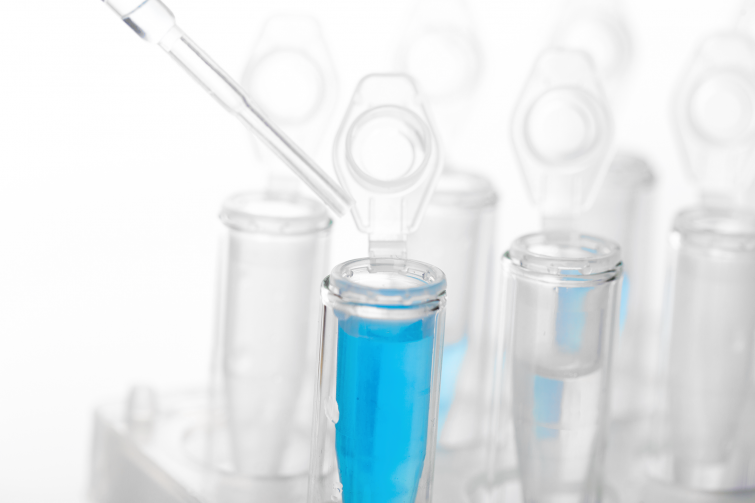
June 30, 2023
Bulletin interne de l'Institut Pasteur


Pasteur Vallery-Radot Prize, Le Point top 100 inventors list: several Institut Pasteur scientists recognized
- Pasteur Vallery-Radot Prize
Jacqueline Pasteur Vallery-Radot, the wife of Louis Pasteur's grandson, chose the National Library of France (BnF) as the residuary legatee of her estate. Under the terms of her will, the BnF awards two prizes every year, in consultation with the Institut Pasteur, funded by the revenue from her legacy.
Since 2007, these prizes have been awarded annually to two French Institut Pasteur scientists under the age of 50 who have led a major scientific project in the field of biology or physics/chemistry over the last five years, thus proving themselves to be worthy heirs of Louis Pasteur himself. Winners are chosen by a panel of Institut Pasteur and French Academy of Sciences members, chaired by the Permanent Secretary of the French Academy of Sciences.
This year, the two Pasteur Vallery-Radot Prizes went to
 Ludovic Deriano, Head of the Genome Integrity, Immunity and Cancer Unit and co-leader of the Cancer Initiative in the Institut Pasteur's Strategic Plan. This prize recognizes his entire body of research on the mechanisms by which lymphocytes acquire genetic abnormalities and then become cancerous. Drawing on various exploratory methods, the research by Ludovic and his team is helping improve our understanding of immunodeficiency syndromes, cancer and processes of resistance to certain cancer treatments.
Ludovic Deriano, Head of the Genome Integrity, Immunity and Cancer Unit and co-leader of the Cancer Initiative in the Institut Pasteur's Strategic Plan. This prize recognizes his entire body of research on the mechanisms by which lymphocytes acquire genetic abnormalities and then become cancerous. Drawing on various exploratory methods, the research by Ludovic and his team is helping improve our understanding of immunodeficiency syndromes, cancer and processes of resistance to certain cancer treatments.

Romain Levayer, Head of the Cell Death and Epithelial Homeostasis Unit, for his research on the coordination mechanisms between cells in a single tissue that maintain a balance between proliferation and cell death or adjust cell elimination following local disruptions. His research, conducted with his team, is important for understanding the processes that subtly regulate the selection of certain subpopulations of cells with mutations that can result in the emergence of tumors.
Read Stewart Cole's speech (in French)
- Two Institut Pasteur scientists in the 2023 top 100 inventors list published by the magazine Le Point
For the second year in a row, the news magazine Le Point has published a list of top inventors. The idea was to select 100 people who have developed an innovation with the potential to change the lives of hundreds of thousands of individuals. A panel of experts from the academic, corporate and business communities contacted more than 200 incubators, research centers and universities in a variety of fields (artificial intelligence, biotechnologies, aerospace, robotics, neuroscience, energy, medicine, etc.) and selected just ten inventors for each field. The aim of Le Point is to showcase "deep tech" companies that aim to make groundbreaking innovations.
The top 100 list includes two Institut Pasteur scientists who were selected for their innovations aimed at improving public health:
 Monique Lafon, chosen for her discovery on the protective properties of the rabies virus for neurons. Research carried out in the Viral Neuro-Immunology laboratory has led to the startup Neurophoenix, which is developing a drug to tackle neurodegenerative diseases.
Monique Lafon, chosen for her discovery on the protective properties of the rabies virus for neurons. Research carried out in the Viral Neuro-Immunology laboratory has led to the startup Neurophoenix, which is developing a drug to tackle neurodegenerative diseases.
 Anavaj Sakuntabhai, selected for the development of a vaccine candidate for dengue. Research conducted in the Functional Genetics of Infectious Diseases Unit will be pursued by the startup V4C (Vaccine for Communities) with the aim of bringing the vaccine to market and making it accessible to developing countries.
Anavaj Sakuntabhai, selected for the development of a vaccine candidate for dengue. Research conducted in the Functional Genetics of Infectious Diseases Unit will be pursued by the startup V4C (Vaccine for Communities) with the aim of bringing the vaccine to market and making it accessible to developing countries.

